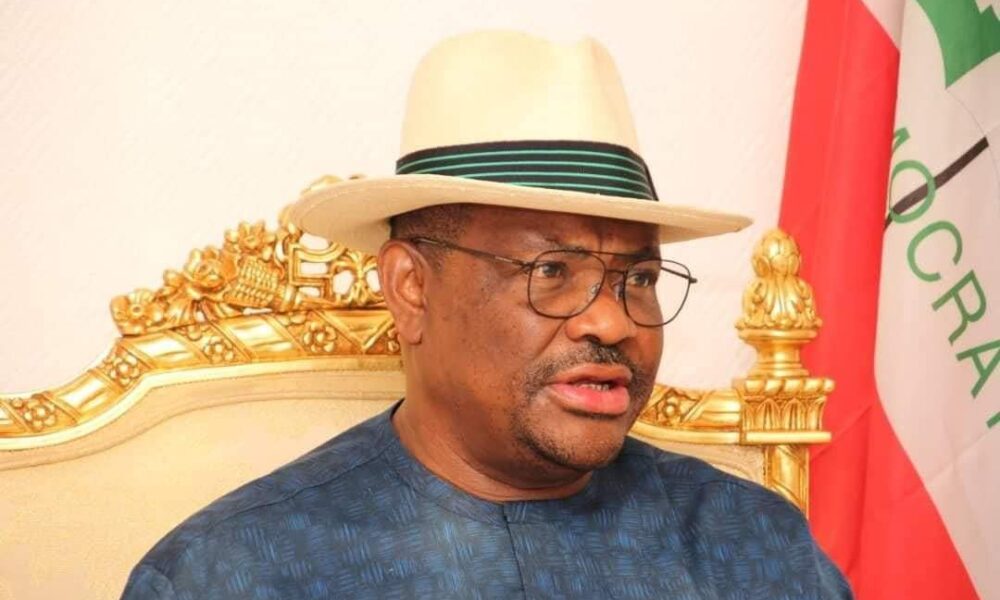Fuel subsidy: Reps reject FG proposal at 3.36 trn for 2023 and set 1.7 trn as spending limit
The House of Representatives passed the Medium-Term Expenditure Framework and set a cap for spending on the controversial fuel subsidy.
Lawmakers have set a spending cap of 1.7 trillion naira for the 2023 financial year, compared to 3.3 trillion naira proposed by the federal government.
In the MTEF adopted Thursday by the lower house, lawmakers rejected the two scenarios presented by the executive in the proposed MTEF.
According to Finance Minister Zainab Ahmed, in the first scenario, the deficit is projected to be N12.41 trillion in 2023 from the budgeted N7.35 trillion in 2022, representing 196% of total revenue or 5 .50% of estimated GDP.
Under this option, she added, the government would spend N6.72 trillion on subsidies.
Ms Ahmed said the second option is to maintain subsidies until June 2023 and this scenario will take the deficit to N11.3 trillion, or 5.01% of estimated GDP. In this option, the PMS subsidy is expected to swallow N3.3 trillion.
In the MTEF report adopted by the Committee of Supply, the House decided "that the cost of the oil subsidy be capped at 1.7 trillion naira accordingly, all relevant government agencies shall take the necessary steps to maintain oil cost of subsidy to government up to the cap limit of 1.7 trillion naira in 2023.
The lawmakers said that through this action, "the sum of N737,306,443,151 will be saved and should be used to reduce the government's N11.3 trillion budget deficit as shown in the MTEF/FSP", and "savings from the subsidy scheme amounting to N737.31 billion to N10.56 billion",
Numbers don't matchHowever, the figures presented by lawmakers did not match.

Based on the spending limit of 1.7 trillion naira and the expected savings of 737.36 trillion naira, this gives a total of around 2.4 trillion naira, which is lower than the 3.3 trillion naira. naira offered by the government.
Additionally, lawmakers increased the benchmark oil price by $70 a barrel to $73 a barrel, hence the extra $3 on each barrel. Despite this adjustment, the deficit was only reduced by savings of N737.36 billion on the subsidy ceiling.
When clarification on these discrepancies was sought during a press briefing, Committee Vice-Chair Saidu Abdulahi (APC, Niger) promised to review the documents.
READ ALSO:"Of course, as I said, the savings from the $3 are supposed to reduce the deficit and the level of borrowing. I have to check the report. It's supposed to have been captured as a savings that will have an impact on borrowing. I will check the report to make sure it was entered correctly,” he said.
On how the lawmakers arrived at the 1.7 trillion naira figure, Mr Abdulahi said the committee took into account the timing of the Port Harcourt refinery as well as the ongoing investigation into the regime fuel subsidies.
"We looked at the dynamics - some of the things I mentioned earlier, that Port Harcourt (refinery) is coming - the House committee is also working with the executive to come up with the scientifically proven volume of our daily consumption Looking at those things, we decided to iron them out,” he said.
Grant incentives to revenue-generating agenciesThe House also decided that 10 federal government revenue-generating agencies would benefit from cost-of-collection incentives, such as the Federal Inland Revenue Service (FIRS) and the Nigerian Customs Service (NCS).
FIRS is legally allowed to retain 7% of revenue collected, while Customs retains 4% of revenue as a collection fee.
The Nigerian Communications Commission (NCC), Corporate Affairs Commission (CAC), Nigerian Port Authority (NPA), Nigerian Maritime Administration and Safety Agency (NIMASA) and Joint Admission and Matriculation Board (JAMB) must obtain the percentage of collection cost.
Other beneficiaries are the Nigerian Upstream Regulatory Commission, the Nigeria Intermediate and Downstream Regulatory Authority (NMDRA) and the National Agency for Food and Drug Administration and Control (NAFDAC).< /p>
Legislators have decided that their respective establishment laws will be modified in the finance bill which will be examined alongside the budget.
Explaining the rationale for this directive, Mr. Saidu said that this decision would solve the challenges associated with the current operating surplus rem...

The House of Representatives passed the Medium-Term Expenditure Framework and set a cap for spending on the controversial fuel subsidy.
Lawmakers have set a spending cap of 1.7 trillion naira for the 2023 financial year, compared to 3.3 trillion naira proposed by the federal government.
In the MTEF adopted Thursday by the lower house, lawmakers rejected the two scenarios presented by the executive in the proposed MTEF.
According to Finance Minister Zainab Ahmed, in the first scenario, the deficit is projected to be N12.41 trillion in 2023 from the budgeted N7.35 trillion in 2022, representing 196% of total revenue or 5 .50% of estimated GDP.
Under this option, she added, the government would spend N6.72 trillion on subsidies.
Ms Ahmed said the second option is to maintain subsidies until June 2023 and this scenario will take the deficit to N11.3 trillion, or 5.01% of estimated GDP. In this option, the PMS subsidy is expected to swallow N3.3 trillion.
In the MTEF report adopted by the Committee of Supply, the House decided "that the cost of the oil subsidy be capped at 1.7 trillion naira accordingly, all relevant government agencies shall take the necessary steps to maintain oil cost of subsidy to government up to the cap limit of 1.7 trillion naira in 2023.
The lawmakers said that through this action, "the sum of N737,306,443,151 will be saved and should be used to reduce the government's N11.3 trillion budget deficit as shown in the MTEF/FSP", and "savings from the subsidy scheme amounting to N737.31 billion to N10.56 billion",
Numbers don't matchHowever, the figures presented by lawmakers did not match.

Based on the spending limit of 1.7 trillion naira and the expected savings of 737.36 trillion naira, this gives a total of around 2.4 trillion naira, which is lower than the 3.3 trillion naira. naira offered by the government.
Additionally, lawmakers increased the benchmark oil price by $70 a barrel to $73 a barrel, hence the extra $3 on each barrel. Despite this adjustment, the deficit was only reduced by savings of N737.36 billion on the subsidy ceiling.
When clarification on these discrepancies was sought during a press briefing, Committee Vice-Chair Saidu Abdulahi (APC, Niger) promised to review the documents.
READ ALSO:"Of course, as I said, the savings from the $3 are supposed to reduce the deficit and the level of borrowing. I have to check the report. It's supposed to have been captured as a savings that will have an impact on borrowing. I will check the report to make sure it was entered correctly,” he said.
On how the lawmakers arrived at the 1.7 trillion naira figure, Mr Abdulahi said the committee took into account the timing of the Port Harcourt refinery as well as the ongoing investigation into the regime fuel subsidies.
"We looked at the dynamics - some of the things I mentioned earlier, that Port Harcourt (refinery) is coming - the House committee is also working with the executive to come up with the scientifically proven volume of our daily consumption Looking at those things, we decided to iron them out,” he said.
Grant incentives to revenue-generating agenciesThe House also decided that 10 federal government revenue-generating agencies would benefit from cost-of-collection incentives, such as the Federal Inland Revenue Service (FIRS) and the Nigerian Customs Service (NCS).
FIRS is legally allowed to retain 7% of revenue collected, while Customs retains 4% of revenue as a collection fee.
The Nigerian Communications Commission (NCC), Corporate Affairs Commission (CAC), Nigerian Port Authority (NPA), Nigerian Maritime Administration and Safety Agency (NIMASA) and Joint Admission and Matriculation Board (JAMB) must obtain the percentage of collection cost.
Other beneficiaries are the Nigerian Upstream Regulatory Commission, the Nigeria Intermediate and Downstream Regulatory Authority (NMDRA) and the National Agency for Food and Drug Administration and Control (NAFDAC).< /p>
Legislators have decided that their respective establishment laws will be modified in the finance bill which will be examined alongside the budget.
Explaining the rationale for this directive, Mr. Saidu said that this decision would solve the challenges associated with the current operating surplus rem...
What's Your Reaction?






















